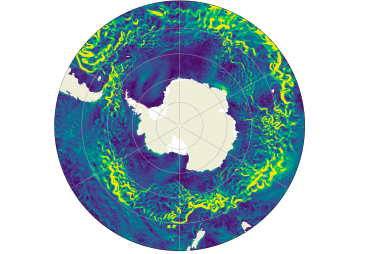Oceans

Sciences & Technology
Analysis
Scientists have created a manifesto for our ocean
The ocean is fundamental to life on our planet and to our future. It’s time for leaders to listen to the evidence-based science and act

Sciences & Technology
The world’s most powerful ocean current could slow by 2050
New research finds the more Antarctic ice melts, the more the ocean is flooded by melt water, the more the Antarctic Circumpolar Current is likely to slow down – creating a vicious climate change cycle

Environment
How whales struggle to navigate in a sea of noise pollution
New modelling shows that as noise from shipping and other human activities surges, whales will find it increasingly harder to successfully migrate

Environment
The smallest marine microbes share nutrients – briefly
Fleeting interactions between the smallest phytoplankton and bacteria help to shape global ocean productivity

Sciences & Technology
Whale migration in our noisy oceans
Mathematical modelling reveals that human-driven noise in our oceans is affecting marine life, particularly whales, confusing their annual migrations

Sciences & Technology
Man bites shark: How dangerous are humans to sharks?
A new approach estimates the risks that fishing and climate change pose to any shark species here in Australia, and potentially worldwide

Sciences & Technology
Extreme waves set to be bigger and more frequent
As the planet warms, researchers are warning that the frequency and magnitude of extreme wave events may rise by around 10 per cent by the end of century, increasing flood risks

Sciences & Technology
When will Australia’s drought break?
For drought-busting rains, Australia might just have to wait for the tropical oceans to serve up some moisture, finds new research

Environment
How you can help scientists monitor our beaches
Monitoring erosion at our beaches is crucial to formulating strategies to make the coastline more resilient, but it takes a lot of work. Now you can help while enjoying a day at the beach

Sciences & Technology
The ‘freak wave’ myth
New research finds ‘freak waves’ don’t really exist and Australia’s experienced rock fishers are the ones who best understand the danger of the ocean’s waves